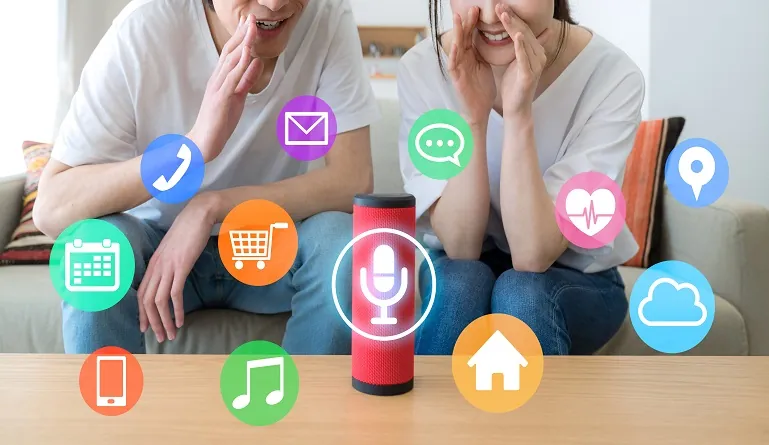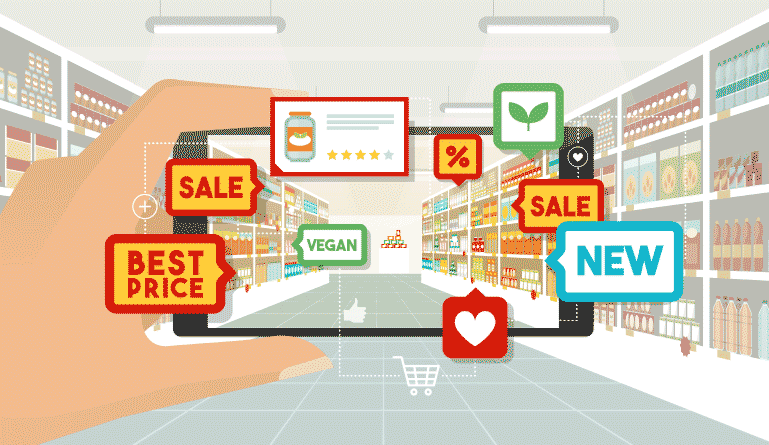Staying competitive in the retail market can be challenging. There are innumerable factors to consider, from distributor and vendors to work with product safety and licensing to which marketing approach to take and how best to communicate with your target audience.
One of the most decisions to make – and to continue modifying as market trends change – is how you’ll sell your products. The more ways that you can offer your product to customers, the more chance you’ll have to make sales and grow your business.
Why is m-commerce important to retailers?
E-commerce is the term that applies for shopping online – vendors like Amazon have become synonymous with e-commerce and it’s why most businesses, even those with a brick and mortar location, have an online shopping option and why a good bit of business marketing revolves around creating engagement and interaction with e-commerce pages.
M-commerce is the mobile-optimized version of online shopping, often taking the form of a phone or tablet app that makes the research and shopping experience more streamlined and easier for customers. Current market research tells us that this is significant and can’t afford to be ignored. Big Commerce notes, “The top three buying destinations for consumers are Amazon, branded e-commerce websites and brick-and-mortar stores. But consumer reasoning for why they buy at each of these channels differs –– by channel and by generation…Convenience, price, and free shipping were the top 3 reasons U.S. consumers across all generations chose to buy an item at a branded online store.” M-commerce is one of the top ways to create a desired, convenient shopping experiences for consumers.
What is omnichannel retailing?
According to the Columbus Chamber of Commerce, focused on helping small businesses find revenue-growing solutions, omnichannel retailing is defined as “well-coordinated multichannel sales approach with the aim to provide customers with a wholesome shopping experience. Whether a customer chooses to shop from an online store or a traditional brick and mortar store, he or she may use a mobile or desktop device or even a telephone to get in touch with the store and the shopping experience would be perfectly seamless.”
In short, omnichannel in m-commerce means that businesses are focused on providing the best customer experience no matter they purchase, from their mobile device to the register counter. Part of the reason behind this – and why it needs to be a focus on m-commerce businesses – is because many customers are interacting with information from a mix of sources before making a final decision. Some will read about the product online and then go in-store to buy. Some will see the product in a store while shopping for something else or have it recommended to them while purchasing something else on Amazon, only to later go to a business-specific mobile site or app to complete their purchase.
Omnichannel, however, is about more than just providing buying options and information no matter where the customer chooses to shop. It’s about connecting with customers through the whole experience. It means sending emails to customers who haven’t completed their online purchase, as well as to people who haven’t shopped in stores lately or downloaded the new app. It means retargeting customers with coupons and other offers on social media to help drive traffic to both m-commerce options and other shopping avenues. Engaging with the customer in a consistent way across mediums is the key to successful omnichannel marketing, and ultimately to the success of m-commerce and e-commerce business.
The Columbus Chamber of Commerce research says, “Companies that invest in omnichannel efforts have experienced 89% of customer engagement and retention…ardent shoppers are no longer differentiating between the desktop and mobile platforms when it comes to carrying out their shopping, whether it is from an e-commerce store or a traditional store. While 71% of in-store customers say that their device and online search has become intrinsic to their shopping, a mere 45% of retailers have made any effort to harness the new emerging technologies.”
Creating a good omnichannel in m-commerce experience
There are some simple ways to enhance your omnichannel in m-commerce efforts. Many of these are natural extensions to the digital marketing most businesses are employing already.
#Use location-based marketing
Imagine being able to communicate with your customers in the store automatically. Using location-based marketing means that when customers stop into your physical store or come by your event, they can receive a mobile push notification that alerts them to a special deal, sale, or feature they can take advantage of in-person, right then and there.
#Target across devices
A good m-commerce omnichannel strategy will target users across all of their mobile devices. That means that when someone sees a social media ad on their phone, they will also see the same ad on their tablet. When a marketing software knows that the same user is on a tablet and a smartphone, you can create a more consistent, personalized marketing experience that will drive your m-commerce forward.
The importance of omnichannel in m-commerce is significant, as it enables you to communicate more effectively and consistently with your customers and can help you stay competitive in a crowded retail market.





